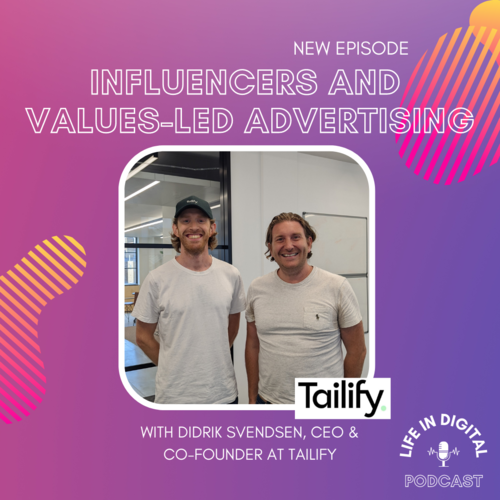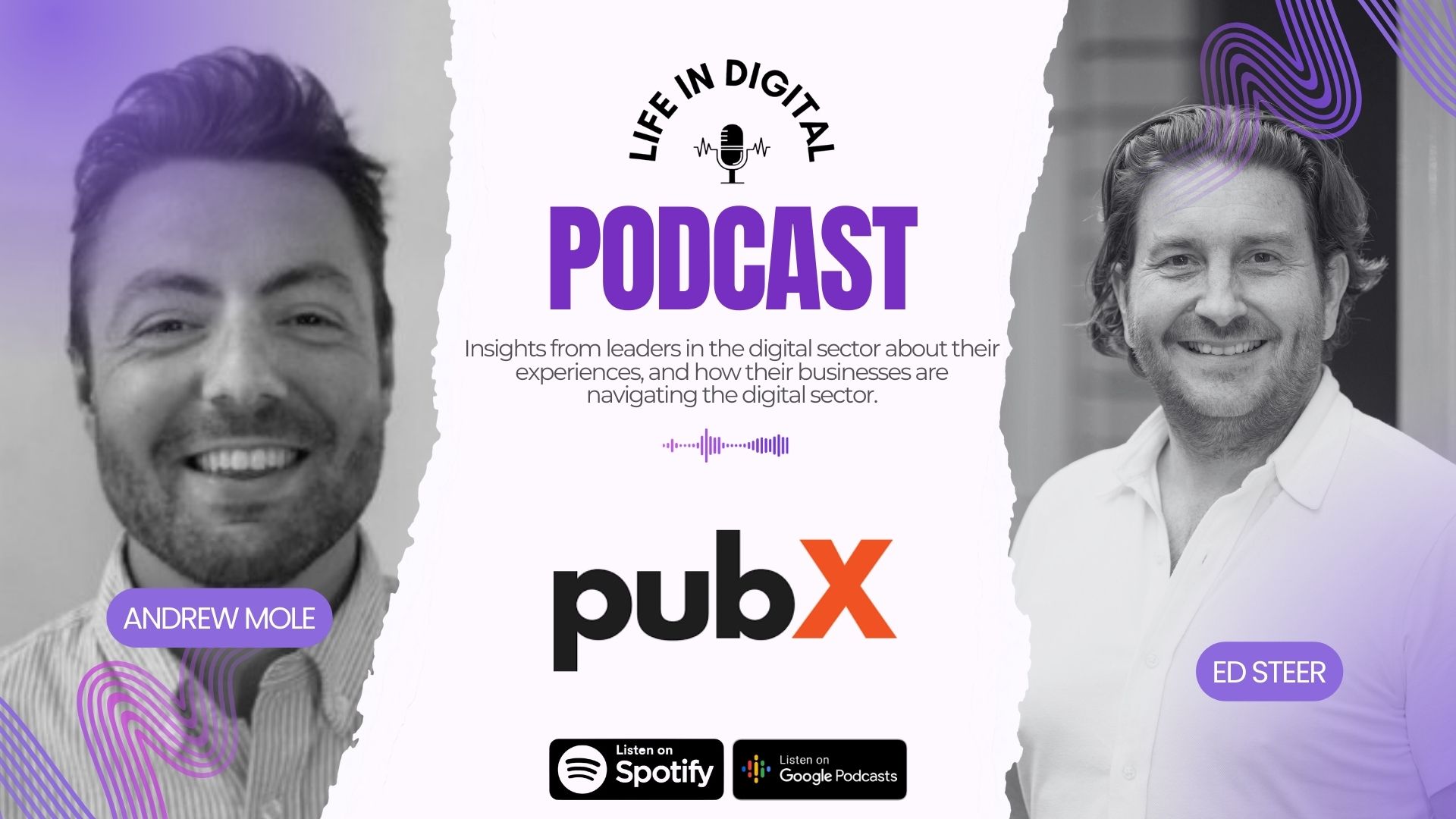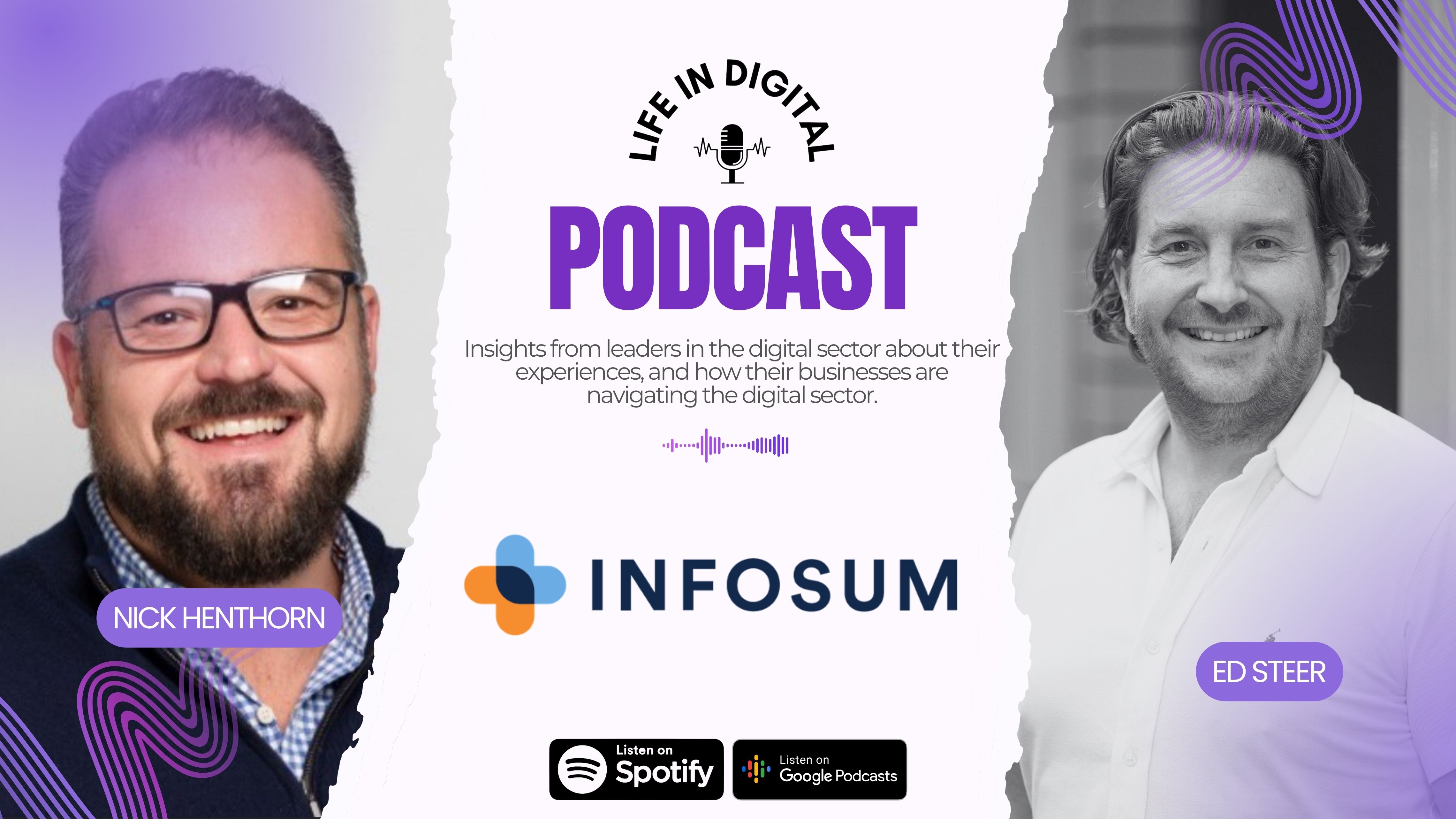"As Humans we’re Biologically Wired to Trust People” All things Influencer Marketing
15 Aug, 20225 minsOn our latest episode of Life in Digital Podcast, Ed and Didrik, CEO and founder of Tailify,...

On our latest episode of Life in Digital Podcast, Ed and Didrik, CEO and founder of Tailify, discuss the future of influencer marketing and how this will lead the next generation. They analyse the psychology of what makes us trust another, as well as considering what an individual values, and how this affects our consumption behaviour.
Launched in 2013, Tailify is an influencer marketing agency, powered by science. It was evident that there was a shift happening with the world of online influencers growing, however they watched as brands attempted and failed to win this new type of marketing.
Tailify view their work as scientific – to understand influence they spent nine years researching and defining the rules of the influence economy. As a result of their knowledge and credibility, Tailify now work with top global brands to create, manage, and scale influence programmes, to create category leaders.
Values, Values, Values
“Identify the correct brand and influencer match – this is where campaigns become more effective”
Values are an important feature of both marketing and consumption. A company's values represent what they stand for and what’s important to them, and whether a consumer resonates with this can influence whether they will purchase their product/service.
Influencers are an important driver for helping brands promote their values, and subsequently, influence consumers to make a purchase. If people feel they connect with/trust the influencers they follow on Instagram or watch on YouTube, and feel they understand and relate to what they value, their opinion becomes more validated.
However, values differ between individuals, and what one may stand for/ find valuable, others may not. Ed and Dirdrick discuss an aspect of the Values Test the two value differently – hedonism.
Hedonism relates to the theory that pleasure is the most important aim for humans – Ed scored highly on this, while Didrick scored low. The different ways they value hedonism means they encounter the same situation differently. For instance, when going to a restaurant, Ed knows what he’s going to order, he wants to eat something he knows and enjoys and will come away feeling satisfied. Dirdrick on the other hand, who scored low in hedonism, values stimulation, and new and exciting experiences – when he goes to a restaurant, he will order something new that he’s never tried before to satisfy this value.
Knowing your values can help you understand yourself, your interests, and how you approach situations. The more you feel understood, the more you can connect with more relevant people and content. This is becoming increasingly important for companies trying to connect with their consumers and using influencer marketing is the way to allow businesses values to be represented.
“Schwartz’s theory of values allows us at Tailify to quantify a match’s calibre and to match-make based on these measures.”
This is why companies use Tailify, to understand their brand values and who best to use as an influencer, to promote their product/service in the most influential way to the correct audience.
Why not try Tailify’s Personal Values Test and see what it is you value most: https://vt.in3.world/.
Owner of a business? Why not try the Brand Values Test: https://bvt.in3.world/.

Example/Case Study – Gymshark
“The best influencers have channels that are basically public displays of their values.”
By taking a risk and investing in influencers, Gymshark has now gained a significant following, described as a community of like-minded people with shared values. Not only does this make their brand unique and more desirable than their competitors, Gymshark has become a trusted brand in which people feel a sense of belonging – it is more than a clothing line, it is a shared vision of finding inspiration and becoming your best.
The use of influencer marketing has been regarded as the success driver for the company’s growth. Gymshark’s influencers, now coined ambassadors, must not only have a substantial following coupled with strong engagement, but any collaboration-worthy influencer must be a good fit to ensure authenticity and credibility, following the company’s vision and what they stand for.
To become an ambassador for Gymshark they claim:
“it's not just about the athlete – it’s about how you can positively influence others.”
Influencer Marketing – The Psychology Behind it
“To understand why people do what they do, you need to apply the principles of psychology and behavioural science.”
Influencer marketing is based on the psychology of influence. Influence is an unconscious act and this is why it works. As humans, decision making is both time consuming and strenuous, therefore we look for ways for this to be made easier. As a result of brands learning and understanding the psychology of decision making, and social media taking a rise, influencer marketing made an appearance as a new way of marketing.
But who do we trust and why do we trust their influence? Let’s break it down further:
Authority
When someone appears to have authority we listen to them, this is because we have been socially trained to listen to those considered an expert in their field (Milgram, 1963). For instance, we are likely to listen to health advice from a doctor as they are considered an expert in their field. Therefore, if a doctor was to promote a product he recommends, chances are we’d trust his opinion and buy this product.
The same goes for influencer marketing, when deciding, for example, which make up products to buy, if you watch someone on YouTube who you feel is a credible source and shares your values, chances are you trust their opinion and would purchase items they recommend.
Informative Social Influence / Social Proof
People feel the need to be informed when making a decision, and when they lack confidence in their own knowledge, they turn to others in the hope of providing them the correct information. A classic example can be seen in the work of Asch (1951).
A lot of people make purchase decisions if a brand provides social proof, therefore leveraging a trustworthy influencer to promote your product is one of the best ways to provide social proof.
Liking/ Halo Effect
Finally, when we like someone, or regard them highly, we are more likely to listen to them and trust their opinion as we look up to them and aspire to be like them. The Halo Effect is our tendency to allow our positive feelings of a person, brand, or product in one area, to positively influence our feelings about them in other areas.
Using a highly rated social figure as an influencer is more likely to drive sales of your product or service, as people aspire to be like them, purchasing the same products and valuing the things they do.

The Future of Influencer Marketing
“The next generation is influencer led”
Claims Didrick in his conversation with Ed, and going by the research he’s not wrong. There is an undeniable shift happening in this world. The power is moving from brands to consumers. Consumers can choose what to see, based on what they value the most, from the people they trust. It’s their rules and brands have to play by them.
“In 3 years from now, influencers will be the world's largest industry of people employed”
Currently, there are 100 million people employed as influencers, and in 10 years this is expected to rise to 200 million. Didrick claims that, if from an early age you can understand that X cares about Y, you'll be easier understood online. As a result, you will be able to connect with websites/content/influencers you care about and customize your entire online experience.
We have only covered snippets of the content shared in Didrick and Ed’s discussion on our latest episode of the Life in Digital Podcast. To listen to the episode in full, check out our Life in Digital Podcast page.



